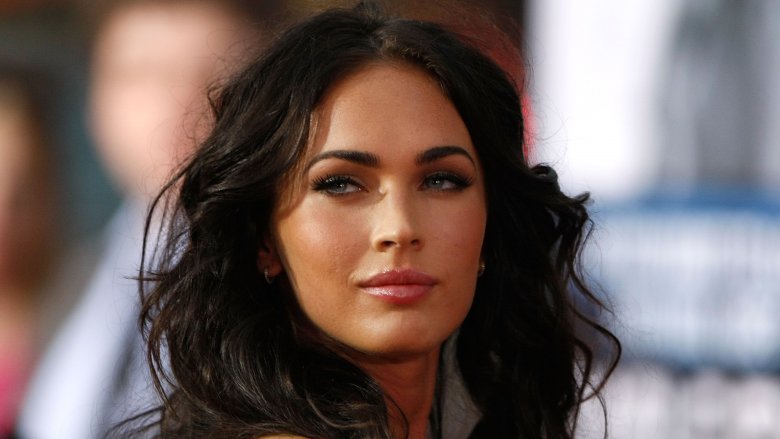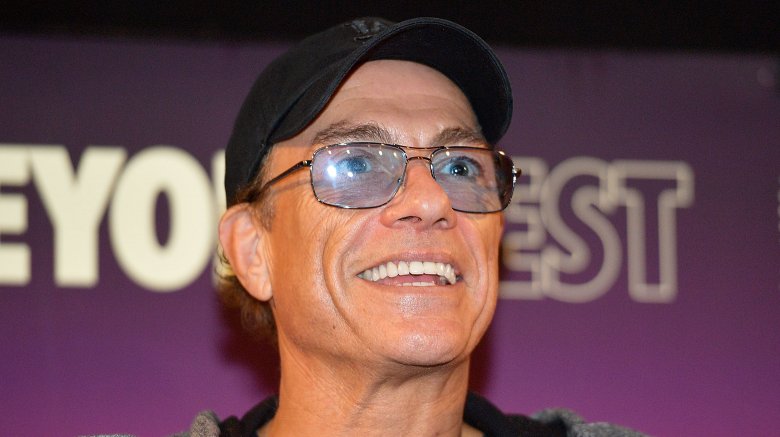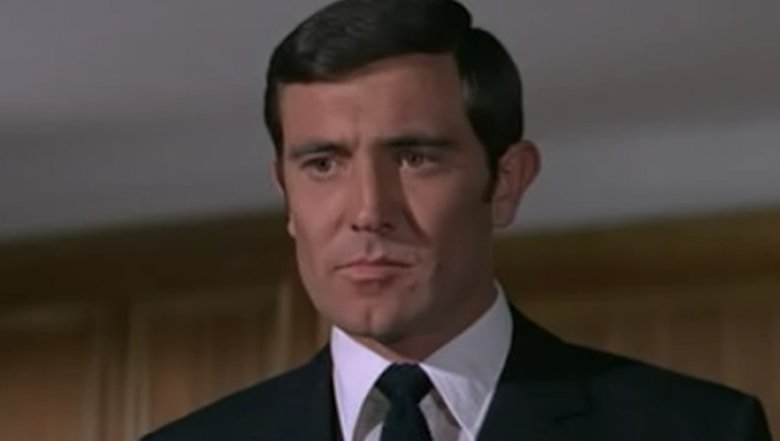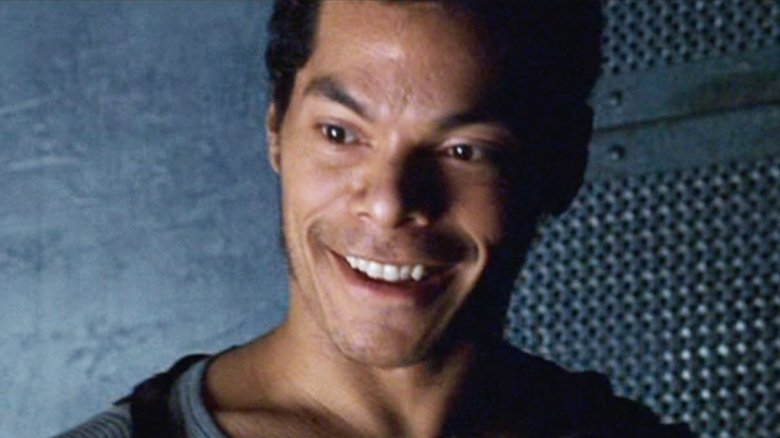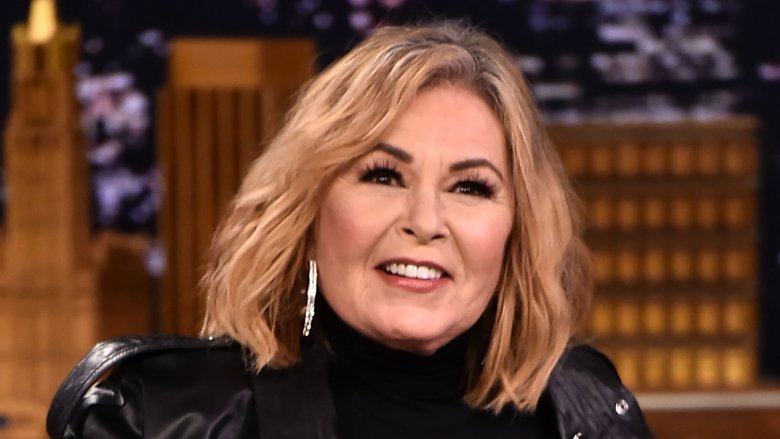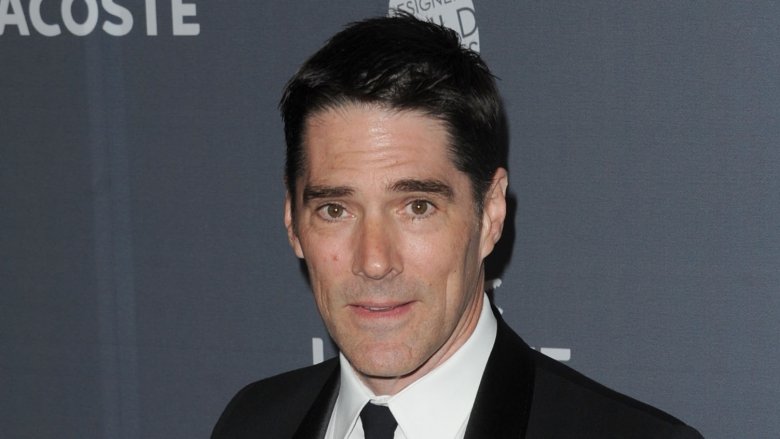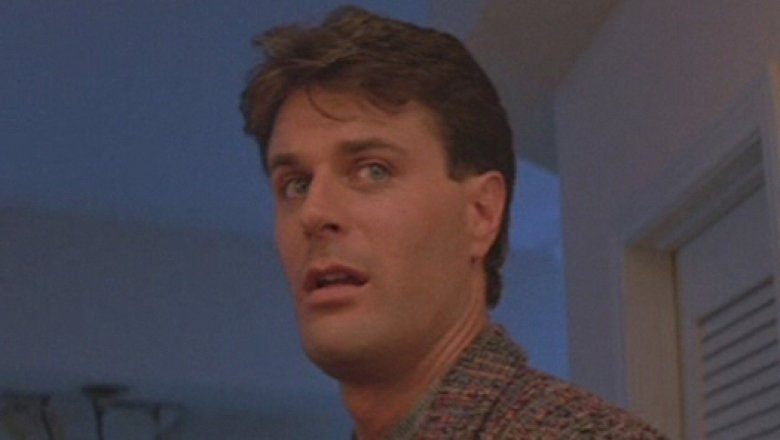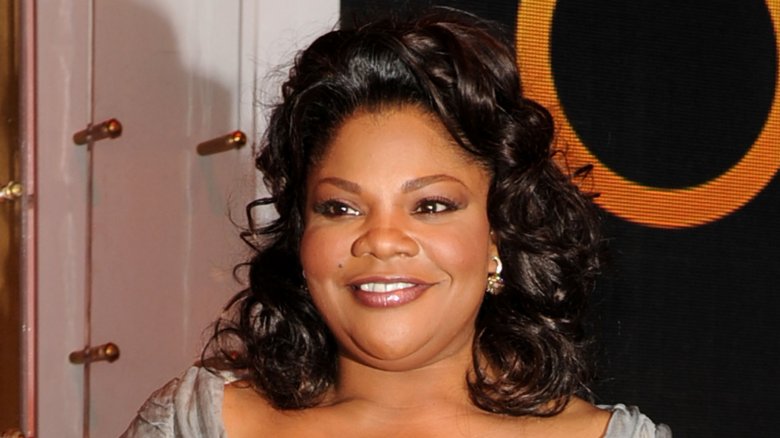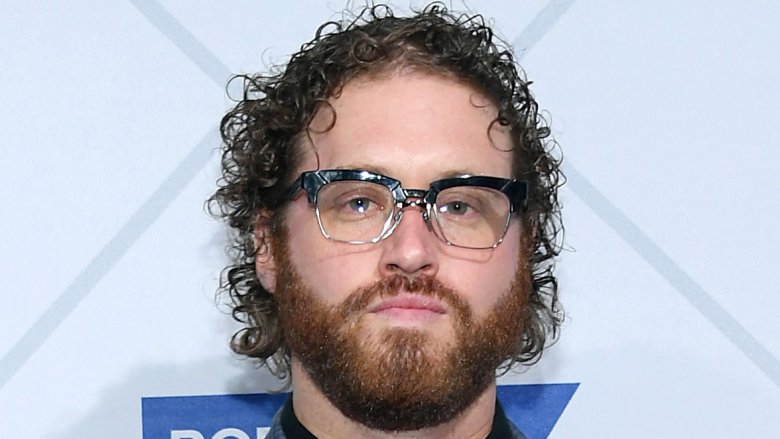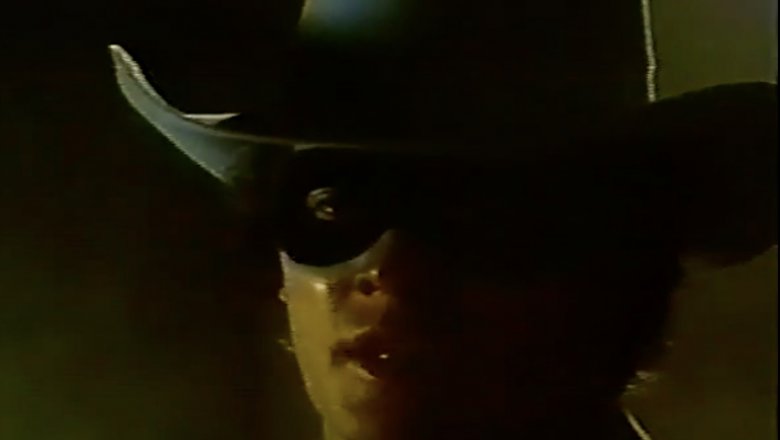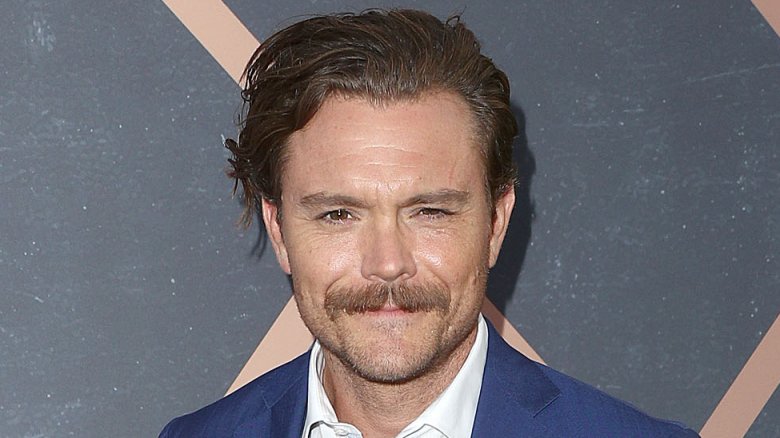The One Bad Decision These Actors Never Recovered From
It's tough to navigate fame. It's a heady mix of money, adulation, and hard work. True, it's not chopping wood or harvesting crops, but actors spend a lot of time hanging around on sets waiting to shoot, or in studios nailing takes for their TV show, and then weeks on the road doing interviews with magazines and talk shows to promote those movies and TV shows. And while actors are by and large talented and beautiful people, they're not immortal. They're human beings, which means they screw up from time to time. People make mistakes, even at work, and most can be smoothed over with an earnest apology while time lets the offended parties forgive and forget. That's not what happened for these stars of movies and television. In their attempts to make and promote good work, they messed up big time, or executed such huge errors in judgment that their once-promising careers were never quite the same.
Jean-Claude asked for too much Van Damme money
Jean-Claude Van Damme didn't need giant explosions to dominate the box office in the late '80s and early '90s. All JCVD needed were his fists, feet, and martial arts acrobatics to make hits out of fun and cheesy action flicks like Kickboxer, Hard Target, and Universal Soldier. His biggest domestic box office hit as a leading man, with a $44 million take: the 1994 time-travel thriller Timecop. That represented his commercial peak, as subsequent movies made significantly less, with bombs like Sudden Death, The Quest, and Double Team.
How did the "Muscles from Brussels" fall out of Hollywood's good graces so quickly? Greed. Right after Timecop drew huge crowds, Van Damme was reportedly offered a three-movie deal with a salary of $12 million per film. That's a lot of money, but it was around the same time that Jim Carrey became the first actor to demand $20 million per movie. Considering himself just as big a star as Carrey, Van Damme rejected the $12 million and asked for $20 million, too. No deal, said the studio that offered the three-movie deal. And then, as Van Damme told The Guardian, he was "on the blacklist. That was it."
George Lazenby thought playing James Bond was bad for his bedroom
After Sean Connery played James Bond five times, he stepped away from the role, and producers picked handsome Australian George Lazenby to replace him in 1969's On Her Majesty's Secret Service. Those were some big shoes to fill for a former model with no previous professional acting experience, but he was up to the challenge, and audiences by and large accepted the new guy. On Her Majesty's Secret Service was one of the top grossing films of 1969, and the Bond movie team wanted Lazenby to do more. He later told the Sydney Morning Herald that producer Harry Saltzman said, "Sign the f***ing contract and I'll give you a million dollars."
But Lazenby wasn't interested in huge amounts of money or one of the most famous roles in movie history, because wearing that James Bond tuxedo was getting in the way of his womanizing. "Back then it was hippy time, it was 'make love not war,'" Lazenby said. "I just wanted to get laid, and if you had a suit on you looked like a waiter." To Lazenby, that meant that "Bond was over, so I didn't feel like I was doing the wrong thing by myself." And so, he played James Bond just the one time... and went on to guest-star on cheesy TV like B.J. and the Bear and Superboy.
Marcus Chong thought they couldn't make another Matrix movie without him
The Matrix made stars out of many, first and foremost the Wachowskis, who wrote and directied the thing. It also elevated the careers of relative unknowns like Carrie-Anne Moss and Marcus Chong, who played ship operator Tank. Chong curiously didn't return for the sequels, and the reasons why unfolded when the actor filed a lawsuit shortly after The Matrix Reloaded hit theaters in 2003.
According to The Guardian, Chong filed suit against Warner Bros. and its parent company, claiming the company violated a 1998 verbal agreement and a 2000 contract that guaranteed he'd be brought back for any Matrix sequels. He also alleged that people associated with the movies spread false, defaming information that painted Chong as a terrorist, which he said effectively prevented him from finding any notable work in Hollywood.
However, Reuters reported that there was more to the story: Warner and Chong had engaged in salary discussions, but after they failed to come to an agreement, the actor made a bunch of threatening phone calls their way, and he was arrested (and released on bail) for that in October 2000. And so, in The Matrix Reloaded, Tank and Chong were gone, replaced by a new operator named Link, portrayed by Harold Perrineau After his chance to continue co-starring in one of the biggest movie franchises ever fizzled out, Chong worked sporadically, making a handful of appearances on TV dramas, in short films, and starring in a barely released sequel to The Crow.
Roseanne Barr didn't think before she tweeted
Roseanne, the 1988-1997 heartland sitcom starring Roseanne Barr, returned to ABC in 2018. The Conner family wasn't doing well, coping with money problems and prescription drug abuse. Viewers loved that reflection of a stark reality: it finished the season as the #3 show on network TV. ABC obviously picked up a second season, but on May 29, 2018 issued a rare reversal: the highly-rated Roseanne revival was dead.
Just a few hours earlier, Roseanne Barr had taken to Twitter, as she often did, to express her many political opinions. In this particular instance, she made some bizarre and racist comments about Valerie Jarrett, a lawyer and senior advisor to President Barack Obama during his administration. Barr apologized, saying she made a "joke" that "was in bad taste," but later blamed her odd tweeting on the influence of the sleep drug Ambien. The damage was done. Roseanne was canceled, ultimately replaced with The Conners, basically Roseanne but with the character of Roseanne Conner now dead. Roseanne reruns disappeared from multiple media platforms, and Barr's talent agency dropped her.
Megan Fox insulted her boss
After landing the role of Mikaela Banes in Michael Bay's 2007 adaptation of Transformers, Megan Fox became a huge star almost instantly. She had a big year in 2009, reprising her role as Mikaela in Transformers: Revenge of the Fallen and starring in the satirical horror-comedy Jennifer's Body. That's also when Fox gave a fateful interview to the British magazine Wonderland. When asked what it's like to work with Bay, Fox got very candid. "He's like Napoleon and he wants to create this insane, infamous mad man reputation," Fox said, comparing Bay to the guy who tried to conquer Europe at the turn of the 19th century. But then she came up with another analogy. "He wants to be like Hitler on his sets, and he is."
Few people can get away with comparing their boss to Hitler, but Bay let it slide and hired Fox for Transformers: Dark of the Moon. Less willing to movie on, allegedly, was the film's producer, Steven Spielberg. After he directed Schindler's List, Spielberg founded the Survivors of the Shoah Visual History Foundation to raise awareness of the Holocaust — perhaps it would come as no surprise if he was so angered by Fox invoking Hitler that he ordered Bay to fire her. Spielberg denied this story, while Fox's people told People, "It was her decision not to return." Nevertheless, the Fox hype quickly died down. While she appeared in those live-action Teenage Mutant Ninja Turtles movies and a few indie bombs, her most recent work was a guest stint on New Girl.
Thomas Gibson went ballistic on Criminal Minds
If it's not a Hollywood adage, it ought to be: "Land a role on a CBS procedural crime drama, and you'll be employed for a decade and change." The Eye Network's highly-rated NCIS shows and Criminal Minds have been on the schedule since the early 2000s, providing a consistent paycheck for TV stalwarts like Thomas Gibson, who played Supervisory Special Agent Aaron "Hotch" Hotchner on the first 11 seasons of Criminal Minds.
A source close to the actor told Entertainment Weekly that while Gibson was directing an episode early in the production of season 12, he got into an argument with a Criminal Minds writer. It got so heated that Gibson "instinctively" kicked the scribe in the shin. According to a statement from Gibson's spokesperson, "There were creative differences on the set and a disagreement." After initially earning a suspension, producers fired Gibson from the series.
This wasn't an isolated incident. According to TMZ, in 2010 Gibson pushed a crew member on the set, leading producers to order him into anger management. Since his departure from Criminal Minds in 2016, Gibson has barely worked.
Charles Rocket let his tongue slip
The remaining original cast of Saturday Night Live left the show in 1980, and in came a new batch of players, including Eddie Murphy, Joe Piscopo, and Charles Rocket. Producer Jean Doumanian, stepping into the vacancy left by Lorne Michaels, likened Rocket to a mix of SNL veterans Chevy Chase and Bill Murray.
The 1980-81 season was tumultuous, but Rocket was a stand-out with his pre-taped "man on the street" segment, "The Rocket Report." As his status rose, he found himself at the center of a 1981 episode that parodied the "Who Shot J.R.?" Dallas cliffhanger of the era. Dallas star Charlene Tilton hosted the show, during which an assailant "shot" Rocket. When the cast gathered on the stage at show's end, Rocket showed up in a wheelchair, and Tilton asked how it felt to get shot. "Aw, man. It's the first time I've ever been shot in my life," Rocket said. "I'd like to know who the f*** did it."
Rocket soon lost his job at SNL. Compared to Chevy Chase and Bill Murray, he didn't become a major movie star, although he was a familiar presence on TV shows and films in the '80s and '90s, usually playing yuppies, jerks and slimeballs to the hilt in things like Moonlighting, Earth Girls are Easy, Hocus Pocus, and Dumb and Dumber. Tragically, Rocket took his own life in October 2005 at age 56.
If you or anyone you know is having suicidal thoughts, please call the National Suicide Prevention Lifeline at 1-800-273-TALK (8255).
Mo'Nique wouldn't play the game
It's a safe bet that most actors dream of winning an Academy Award. After all, scoring film's highest honor can instantly launch a performer to the A-list. In 2009, Mo'Nique, at the time known for her popular stand-up comedy career and as the star of the UPN sitcom The Parkers, turned in a terrifying, masterful performance as Mary, the cruel and abusive mother of a pregnant teenager in the stark drama Precious. Mo'Nique subsequently won the Oscar for Best Actress in a Supporting Role. While she went on to host her own late night talk show on BET for three years, Mo'Nique curiously disappeared from the movies — she's appeared on the big screen just a few times since her Academy Award triumph.
Mo'Nique told The Hollywood Reporter that in 2014, she took a call from Precious director Lee Daniels, who told her that she'd been "blackballed." When she asked why, he told her, "Because you didn't play the game." She's not exactly sure what that means — she alludes to asking for too much money — but she does know that Daniels rescinded offers he'd made to Mo'Nique for roles in several of his projects, including The Butler, Empire, and a Richard Pryor biopic. She also refused to play the Oscar campaigning "game" for Precious and says she's now seen as "difficult" to work with.
T.J. Miller forced his own termination
In 2017, T.J. Miller walked away from HBO's tech satire Silicon Valley. At the time, HBO said it was a mutual decision between actor and producers, but a Hollywood Reporter visit to the show's set after Miller's departure revealed it was more of a "good riddance" situation. "There are a lot of different ways you can find out somebody doesn't want to do the show anymore," co-creator Mike Judge said. "And it's not fun to work with someone who doesn't want to be there." Other members of the Silicon Valley family said Miller would show up late, unprepared, and would fall asleep between shots. Judge says he offered Miller what he thought was a workable deal: return for the fifth season in 2018, but only for three episodes to wrap up the arc of his character, Erlich Bachman. Miller said no, and Silicon Valley writers essentially killed off Erlich, abandoning him in a Chinese opium den.
That left Miller time to pursue his blossoming movie career, which included roles in Deadpool 2 and Ready Player One. But the backstage Silicon Valley drama, along with some sexual assault allegations levied by a college acquaintance and a bizarre incident in which he called in a fake bomb threat on an Amtrak train, left his future in doubt. According to his IMDb page, he has just one project lined up, a movie called Underwater that finished filming in 2019.
Klinton Spillsbury acted like a movie star before the movie came out
After just two bit parts on 1970s televison, Klinton Spilsbury somehow won the chance to play the Lone Ranger in The Legend of the Lone Ranger, a major 1981 movie set to reboot the old radio and TV franchise. How? He looked handsome in the famous Lone Ranger mask. "We had to find an actor whose eyes were not close together," producer Martin Starger told Entertainment Weekly.
That was apparently all Spilsbury brought to the film. Co-star David Hayward said that Spilsbury requested dialogue cuts "because he was having trouble with the lines." And producers had to try to cater to the actor's request to shoot the movie in sequence, because he had a hard time acting out a scene if he hadn't yet performed previous ones. Even his voice was bad — producers had another actor dub his lines. And despite his newbie status, Spilsbury strutted around the set like he was a superstar. "He came onto the set as if he was playing the role of a movie star," said another co-star, Christopher Lloyd.
When the film finally hit theaters in May 1981, critics were unimpressed. Janet Maslin of the New York Times called it "half-hearted adventure fare." Audiences stayed away, too — The Legend of the Lone Ranger took in just $12.6 million and quickly left theaters. And Klinton Spilsbury left Hollywood — he never acted again.
One of the most dangerous things on Lethal Weapon was its star
The Lethal Weapon movies are about a "loose cannon" cop named Martin Riggs (Mel Gibson) and his buttoned-down parter, Roger Murtaugh (Danny Glover). In 2016, the series was rebooted for TV, with Clayne Crawford as Riggs and Damon Wayans as Murtaugh. Crawford was reportedly even more of a wild card than his character... but not in a fun way. In one particularly hostile exchange between the two leads, Crawford called Wayans "the biggest crybaby p****" that he'd ever met. That happened the day after an on-set special effects explosion — in a Crawford-directed episode — sent a flying chunk of debris into Wayans' head, causing a laceration.
It wasn't just Wayans that got under Crawford's skin. Footage captured from the production of another episode depicts Crawford so frustrated by child extras making noise that he screams at them to "Shut the f*** up!" On the very next day, clashes with Crawford led episode director Eric Laneuville to walk off the shoot, leaving the show's editor, Matt Barber, to step in. The production company later gave Barber $40,000 for his efforts, which it took out of Crawford's paycheck (and then ordered him into counseling). In May 2018, producers fired Crawford, and when Lethal Weapon returned for its third season, Seann William Scott replaced him in the cast.
